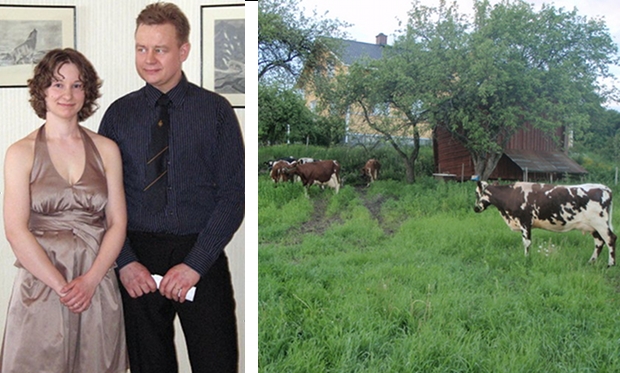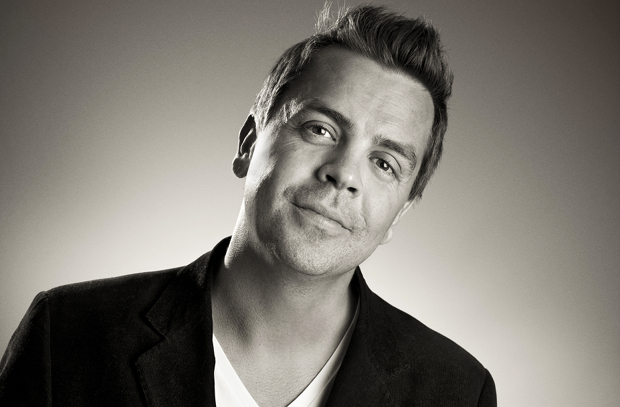Business guru Alf Rehn calls for new ideas in the debate on the countryside. He throws away age-old clichés and asks if there is any reason why the countryside could not offer luxury services. At the end of the text, you can read what rural entrepreneur Ville Simola thinks of Rehn’s ideas.
The countryside means different things to different people. For some, it is the heart of Finland, a vast and serene space where the mind can rest, full of picture-perfect landscapes Finns are eager to show to visitors from abroad.
For others, the countryside is in a state of stagnation where old routines are repeated time and again, and there remains a longing for days of yore when everything was simpler.
The problem is that these two views, positive and negative, both hamper efforts to find a new identity for the countryside, a new meaning, a new landmark.
The thing is, at the moment the burning issue is not about which of the traditional meanings associated with the countryside – whether tinged with the golden light of national romanticism or the grey shades of pessimism – were right and which ones where wrong. First and foremost, it’s about how to create completely new meanings.
New development ideas needed
Although it is probably true that the countryside is tranquil, serene, historical, naturally beautiful and that it can be green, ecological, organic and local-whatever, not breaking away from these concepts may very well be detrimental.
When you look at the development efforts made in the countryside, you soon notice how all the development ideas seem quite similar, how they are all linked to the same meanings. The same ideas of rural tourism are repeated over and over. And each region has a few producers of local food, all of whom look very much the same. The ideas remain the same from one rural community to another.
In this respect, the differences between the countryside and cities may actually be smaller than you might think. Many cities suffer from the fact that the ideas associated with them, both internally and externally, complicate development and the creation of something new.
If you look at projects aimed at reviving a declining city, you notice that successful projects often start by making a clean break from old meanings and creating new ones – you have to wipe the slate clean, at least in part. Of course not everything should be pushed aside and forgotten, but the way out of a state of decline requires more than simply heaping even more praise on traditional themes.
For this reason, it would be important to consider how the debate on the countryside keeps revolving around the same themes – how we could avoid repetition and bring fresh and new insights into the discussion.
There’s more to the countryside than mud, manure and outhouses
The countryside cannot develop if we restrict its opportunities to set ideas, such as the repeated use of terms like “local”, “traditional” or “farmhouse”. For development to be possible, we must also allow ideas that break with the prevailing meanings.
Here’s an example: Why do so few people see the countryside as an opportunity to create luxury services? There is any number of holiday villages whose selling points focus on their being close to nature and “genuine”, but this approach is always based on the assumption that in the country, the way of life is somewhat simpler. This is very strange. Why could the most luxurious spa or the best restaurant in Finland not be located in the countryside? Although we unconsciously associate the countryside with meanings such as “unpretentiousness”, why should this be forever?
The countryside can either become shackled by its old meanings or actively create new ones. Its future depends on which path it takes.
The writer is a professor at the School of Business Economics at Åbo Akademi University.
The countryside answers:

Elina Lamminmäki and Ville Simola, the owners of Isontuvan tila farm; cows grazing on the farm. Photos: www.isontuvanjaatelo.fi
Ville Simola and Elina Lamminmäki are entrepreneurs and the owners of the Isontuvan tila farm in Pöytyä in southern Finland. In addition to milk, the farm produces ice cream for sale. What does rural entrepreneur Ville Simola think of Alf Rehn’s ideas?
“I have to agree with Rehn’s opinion – there can be no progress, unless you call the old ways into question. Of course you need to consider the old, traditional method and look at it critically so that you can derive something new from it. You need to be able to add something new to it, to renew it.”
At your farm, you have renewed old ways by expanding from milk production to ice cream. Where did you get the idea?
“We were holidaying in eastern Finland and visited the Kyytselä farm, which produces ice cream using a method imported from the Netherlands. That gave us the idea. Even before that, we had been thinking about how to find a new direction.
Rehn claims that all rural communities repeat the same ideas of development. Is this true?
“On the whole, it’s true that the same old ideas are repeated, but new ones also emerge. In today’s world, communication is easier than before, and you can find hints and tips from all corners of the world.”
What do you think of Rehn’s idea concerning luxury services?
“Why not? The idea is not at all impossible. The only challenges are marketing and finding your market – but you should always question the existing state of affairs.”
At your farm, look to the future in the sense that you are in the process of changing to organic farming. Why organic?
“It’s an ongoing trend, and there is a huge price difference between organic milk and regular milk. Time will tell whether we made the right decision.”
Text: Maija Lielahti
